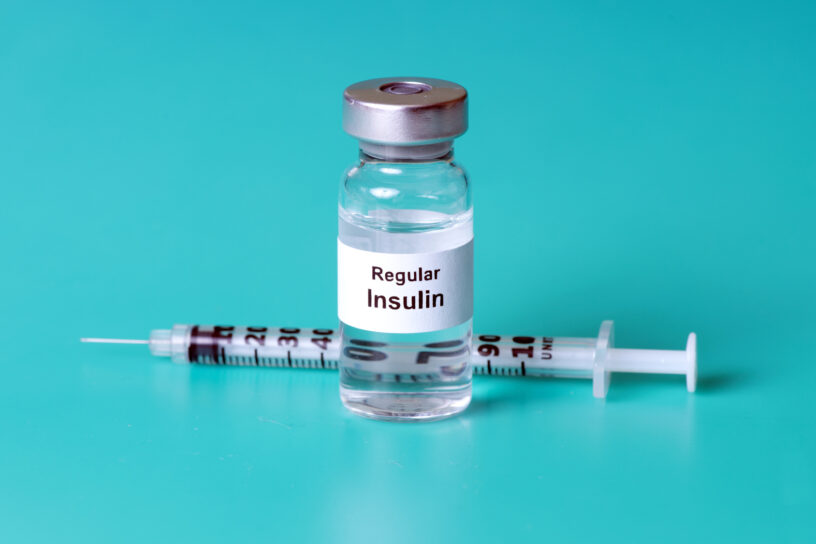The biosimilars insulin market is experiencing notable growth, driven by factors such as the rising prevalence of diabetes, increasing demand for affordable insulin therapies, and favorable regulatory pathways for biosimilar approvals. Biosimilar insulins are biologic products that are highly similar to and have no clinically meaningful differences from existing reference insulin products, offering comparable efficacy, safety, and quality at potentially lower costs.
Several key factors contribute to the growth of this market:
- Rising Prevalence of Diabetes: The global prevalence of diabetes, particularly type 2 diabetes, is increasing rapidly due to factors such as sedentary lifestyles, unhealthy diets, and aging populations. As the number of people living with diabetes continues to rise, there is a growing demand for insulin therapies to manage blood glucose levels and prevent diabetes-related complications.
- Cost Pressures and Healthcare Spending: The high cost of branded insulin products has led to significant financial burdens for patients, healthcare systems, and payers. Biosimilar insulins offer a more cost-effective alternative to branded products, potentially reducing healthcare expenditures while ensuring access to essential diabetes treatments.
- Regulatory Support for Biosimilars: Regulatory agencies worldwide have established clear pathways for the approval and commercialization of biosimilar products, including biosimilar insulins. These pathways streamline the development and regulatory review process for biosimilars, enabling faster market entry and competition, which benefits patients and healthcare systems.
- Patent Expirations and Market Opportunities: The expiration of patents for branded insulin products has created opportunities for biosimilar manufacturers to enter the market and offer more affordable alternatives. This has led to increased competition, price competition, and market penetration of biosimilar insulins, driving market growth.
- Advancements in Biotechnology and Manufacturing: Technological advancements in biotechnology and manufacturing processes have improved the production efficiency and quality of biosimilar insulins. Novel expression systems, purification methods, and analytical techniques enable biosimilar manufacturers to achieve higher product yields, consistency, and similarity to reference products.
However, the biosimilar insulin market also faces challenges:
- Regulatory Hurdles and Market Access: Despite established regulatory pathways, biosimilar developers must navigate complex regulatory requirements and demonstrate equivalence to reference products through rigorous analytical and clinical studies. Achieving regulatory approval and market access for biosimilar insulins can be time-consuming and resource-intensive.
- Patient and Physician Acceptance: Patient and physician acceptance of biosimilar insulins may vary due to concerns about efficacy, safety, and interchangeability with branded products. Education and awareness initiatives are needed to build trust and confidence in biosimilar therapies among stakeholders.
- Market Competition and Pricing Pressures: Intense competition among biosimilar manufacturers and pricing pressures may limit profit margins and hinder investment in biosimilar development and commercialization. Manufacturers must strike a balance between cost competitiveness and sustainable business models.
Click Here, To Get Free Sample Report https://stringentdatalytics.com/sample-request/biosimilars-insulin-market/14725/
Market Segmentations:
Global Biosimilars Insulin Market: By Company
Eli Lilly
Boehringer Ingelheim
Biocon/Mylan
Gan & Lee Pharmaceuticals
Tonghua Dongbao
United Laboratories
Sanofi
Global Biosimilars Insulin Market: By Type
Insulin Glargine
Insulin Aspart
Insulin Lispro
Other
Global Biosimilars Insulin Market: By Application
Type I Diabetes
Type II Diabetes
Global Biosimilars Insulin Market: Regional Analysis
The regional analysis of the global Biosimilars Insulin market provides insights into the market’s performance across different regions of the world. The analysis is based on recent and future trends and includes market forecast for the prediction period. The countries covered in the regional analysis of the Biosimilars Insulin market report are as follows:
North America: The North America region includes the U.S., Canada, and Mexico. The U.S. is the largest market for Cold-chain Pharma in this region, followed by Canada and Mexico. The market growth in this region is primarily driven by the presence of key market players and the increasing demand for the product.
Europe: The Europe region includes Germany, France, U.K., Russia, Italy, Spain, Turkey, Netherlands, Switzerland, Belgium, and Rest of Europe. Germany is the largest market for Cold-chain Pharma in this region, followed by the U.K. and France. The market growth in this region is driven by the increasing demand for the product in the automotive and aerospace sectors.
Asia-Pacific: The Asia-Pacific region includes Singapore, Malaysia, Australia, Thailand, Indonesia, Philippines, China, Japan, India, South Korea, and Rest of Asia-Pacific. China is the largest market for Cold-chain Pharma in this region, followed by Japan and India. The market growth in this region is driven by the increasing adoption of the product in various end-use industries, such as automotive, aerospace, and construction.
Middle East and Africa: The Middle East and Africa region includes Saudi Arabia, U.A.E, South Africa, Egypt, Israel, and Rest of Middle East and Africa. The market growth in this region is driven by the increasing demand for the product in the aerospace and defense sectors.
South America: The South America region includes Argentina, Brazil, and Rest of South America. Brazil is the largest market for Cold-chain Pharma in this region, followed by Argentina. The market growth in this region is primarily driven by the increasing demand for the product in the automotive sector.
Click Here, To Buy Premium Report https://stringentdatalytics.com/purchase/biosimilars-insulin-market/14725/?license=single
The report has helped our clients:
- To describe and forecast the Market size, on the basis of various segmentations and geography, in terms of value and volume
- To measure the changing needs of customers/industries
- To provide detailed information regarding the drivers, restraints, opportunities, and challenges influencing the growth of the Market
- To gain competitive intelligence and uncover new opportunities
- To analyse opportunities in the Market for stakeholders by identifying high-growth segments in Market
- To strategically profile key players and provide details of the current competitive landscape
- To analyse strategic approaches adopted by players in the Market, such as product launches and developments, acquisitions, collaborations, contracts, expansions, and partnerships
About Stringent Datalytics
Stringent Datalytics offers both custom and syndicated market research reports. Custom market research reports are tailored to a specific client’s needs and requirements. These reports provide unique insights into a particular industry or market segment and can help businesses make informed decisions about their strategies and operations.
Syndicated market research reports, on the other hand, are pre-existing reports that are available for purchase by multiple clients. These reports are often produced on a regular basis, such as annually or quarterly, and cover a broad range of industries and market segments. Syndicated reports provide clients with insights into industry trends, market sizes, and competitive landscapes. By offering both custom and syndicated reports, Stringent Datalytics can provide clients with a range of market research solutions that can be customized to their specific needs.
Contact Us
Stringent Datalytics
Contact No- +1 346 666 6655
Email Id- sales@stringentdatalytics.com
Web- https://stringentdatalytics.com/




Leave a Reply